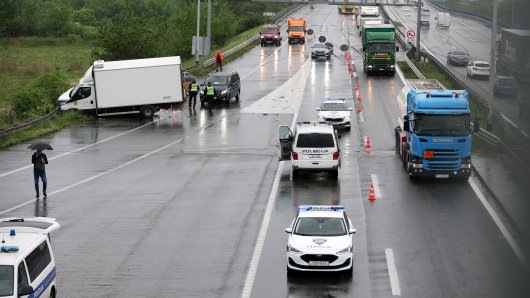Global freedom has been deteriorating for the fifth consecutive year, the Washington-based nongovernmental organisation Freedom House said in its annual survey on the global situation of political rights and civil liberties in 2010.
This is the longest period of continued deterioration of global freedom in almost 40 years of the survey. The number of countries in the category Free and the number of electoral democracies has been reduced and the overall deterioration of freedoms has been recorded in the Middle East and North Africa.
A total of 25 countries saw a significant decline in freedoms in 2010, while 11 countries recorded progress.
The number of countries designated as Free dropped from 89 to 87, but more disturbing was the further decline in the number of electoral democracies, from 116 to 115, putting the figure well below its 2005 level of 123, the survey said.
Also, authoritarian regimes like those in China, Egypt, Iran, Russia and Venezuela were increasing repression, which was not being met with significant resistance in the democratic world.
This should be a wake-up call for all world democracies, said David Kramer, Executive Director of Freedom House. Our opponents are not only involved in widespread repression, they are also doing it with great aggression and self-confidence, and the democratic community is not putting up any resistance, Kramer said.
The Global Freedom survey, which has been published since 1972, investigates the possibilities of individuals to exercise their political and civic rights in 194 countries and 14 territories around the globe. Countries are categorised as Free, Partly Free, and Not Free, according to scores of key indicators of democracy. Grades ranging from 1 to 7 are awarded for two categories - political rights and civil liberties, with 1 being the highest grade.
In the latest survey, Croatia is again categorised as a free country, with a grade of 1 for political rights and grade 2 for civil liberties. As for its neighbours, all countries are described as free except Bosnia and Herzegovina, which is described as partly free with grade 4 for political rights and grade 3 for civil liberties. Slovenia and Hungary received grade 1 in both categories, but in Hungary's case a downward trend was reported due to the government's attempt to control the media via a special council.
Serbia received a grade of 2 in both categories, and Montenegro received grade 3 for political rights and grade 2 for civil liberties.
Ukraine and Mexico were moved from the category Free to the category Partly Free. Djibouti and Ethiopia were moved back from the category Partly Free to the category Not Free. Other countries that show a tendency of decline are Bahrain, the Republic of Côte d'Ivoire, Egypt, France, Sri Lanka and Venezuela.
Immigration policy in 2010 caused concern in many countries, including Western Europe and the United States. The 2010 survey has a few bright spots, including status improvement from Not Free to Free for Kyrgyzstan and Guinea, after free and fair elections, and improvement trends in Kenya, Moldova, Nigeria, the Philippines and Tanzania, Freedom House said.




































